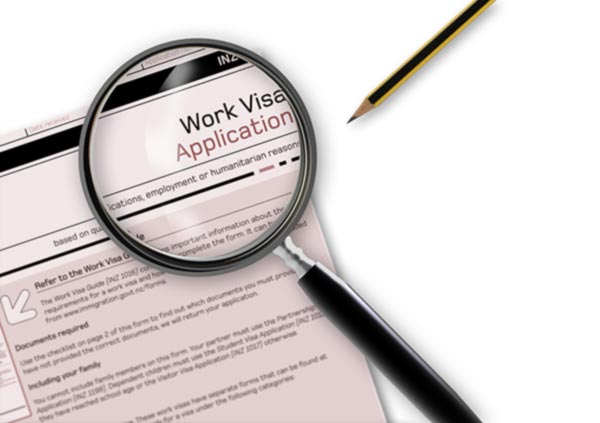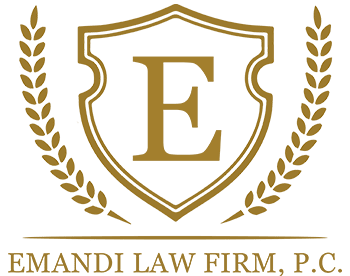H1B Visa Lawyers in NYC
 Temporary Worker
Temporary Worker
The H-1B is a non-immigrant visa in the United States under the Immigration and Nationality Act, section 101(a)(17)(H). It allows U.S. employers to temporarily employ foreign workers in specialty occupations.
If a foreign worker in H-1B status quits or is dismissed from the sponsoring employer, the worker must either apply for and be granted a change of status to another non-immigrant status, find another employer (subject to application for adjustment of status and/or change of visa), or leave the U.S.
The laws regarding the H1B Visa are in constant flux and applicants seriously considering this category as a means of working in the US on a temporary basis should stay informed and updated as much as possible. Since an applicant’s circumstances and the circumstances of his/her dependent family members may require special attention, the following information is not tailored to any one individual but provides general information about this category.
The H1B Visa allows foreign workers to enter the US and work in a variety of fields ranging from architecture and engineering to health and medicine. The H1B visa offers a wide range of employment possibilities and is a logical first step toward permanent immigration.
In order to qualify for H1B classification, the applicant must have at least a U.S. bachelor’s degree or its equivalent AND the job sought must require at least a bachelor’s degree or its equivalent. Because this is not a self-petitioning category, the applicant must have a sponsoring employer in the U.S.
The spouse and unmarried children below the age of 21 are allowed to accompany or join the H1B worker as H4 dependents. However, they cannot work unless they qualify for a work visa. H4 dependents can enroll and attend schools in the U.S. without obtaining a student visa.
H1B Visa Process Steps
- Since the H1B visa requires a U.S. sponsor, the applicant must seek a U.S. employer who is willing to hire the applicant temporarily, pay the applicant the prevailing wage for the offered position and file the petition and supporting documents with the CIS (Citizenship and Immigration Services).
- The petition process begins with the sponsoring employer filing a Labor Condition Application (LCA) with the Department of Labor after obtaining a prevailing wage for the position. Upon obtaining an approved LCA the employer files the petition with Immigration. The petition must be filed with documentation that shows the job is a professional or specialty occupation and that the H1B applicant is qualified for the position.
- The sponsoring employer must file Form I-129 (Petition for Non-immigrant worker) and H supplement with the CIS office having jurisdiction over the place of employment. The base filing fee for an H1B petition is $320. Additional fees apply. All employers must complete and file Form I-129W with the Form I-129 petition.
- If either the employer or the applicant wishes to expedite the H1B petition so an initial determination is made within 15 days of the filing, it may request premium processing for an additional fee of $1,000. The request is made by completing Form I-907.
- After approval, Immigration will send Form I-797 (Notice of Action) to the employer. The employer then notifies the applicant and sends all the required documents to the applicant who can then apply for his H1B visa at the U.S. consulate in his home country.
Eligibility Criteria of H1B Visa
You must demonstrate the following in order to be eligible to obtain a H1B visa:
- You must have an employer-employee relationship with the petitioning U.S. employer.
- Your job must qualify as a specialty occupation by meeting one of the following criteria:
- A bachelor’s degree or higher degree or its equivalent is normally the minimum requirement for the particular position;
- The degree requirement is common for this position in the industry, or the job is so complex or unique that it can only be performed by someone with at least a bachelor’s degree in a field related to the position;
- The employer normally requires a degree or its equivalent for the position; or
- The nature of the specific duties is so specialized and complex that the knowledge required to perform the duties is usually associated with the attainment of a bachelor’s or higher degree.
- Your job must be in a specialty occupation related to your field of study.
- You must be paid at least the actual or prevailing wage for your occupation, whichever is higher.
- An H-1B visa number must be available at the time of filing the petition, unless the petition is exempt from numerical limits.
How We Can Help You Get H1B Visa
- Emandi Law Firm provides assistance and advice regarding H1B options, including the parameters of a full application, activities and options for extensions or changes of status.
- We provide guidance and representation in connection with requests for H1B petitioners in Information Technology, Healthcare, Financial Services and other industries.
For More on H1B Visas, See Success Stories and our Blog
H1B visa or status news, information, complexities, and options, as well as Emandi Law Firm success stories in such cases. You may also search the site for a particular topic, and narrow your search by category.
 L1 VISA Lawyer in NYC
L1 VISA Lawyer in NYC
The United States L1 visa is a non-immigrant visa which allows companies operating both in the US and abroad to transfer certain classes of employee from its foreign operations to the USA operations for up to seven years. The L-1 visa is open to international organizations with offices in the U.S., and who transfer employees to the U.S office for temporary periods of time. This visa is sometimes referred to as the ‘intra-company transferee’ visa.
Executive / managerial transferees are given the L1A designation. Specialized knowledge transferees are given the L1B designation. Large employers may be eligible to fileblanket L-1 petitions with the USCIS, rather than filing individual petitions for each employee.
Two types of L1 Visa
- L-1A Visa- Issued for employees working as an executive or manager for their company.
- L-1B Visa- Persons with specialized knowledge.
Two types of L1 procedures:
- Regular L1 visas – Applied for and approved for each individual by the USCIS.
- Blanket L1 visas – Available to employers who hire large numbers of Intra Company Transferee’s every year.
Your spouse and unmarried children under the age of 21 are allowed to join you in the U.S., under L-2 status. The L-2 spouse is allowed to work provided that she/he first obtains employment authorization from the USCIS. L-2 spouse as well as L-2 children can attend school or college. Servants may be eligible for a B-1 visa with work authorization.
L1 Visa Green Card
L1 employees may apply for permanent residency without having process of labor certification and dependents of L1 can apply for the green card together with the principal employee but dependents must go through the labor certification process.
L1 Visa Process Steps
The employer must file a petition with the USCIS Regional Service Center with jurisdiction over the location of the position. These documents should be photocopies of the originals. The L1 petition can be premium processed which means that if an additional fee of $ 1000 is paid on top of the filing fee of $325 and the fraud prevention and detection fee of $500, the petition will be adjudicated within 15 days of being filed with the USCIS.
The USCIS may request additional documents prior to either approving or denying the case. If it is a premium processing case, the request for additional documents or information must come within the 15 days. You will then have 12 weeks to respond.
Once approved, the USCIS will forward the petition to the U.S. Consulate nearest your place of residence for review. If you are not in the U.S. when your petition is approved, you must get your visa stamped at the U.S. Consulate before being allowed to enter the U.S. Your employer will receive Form I-797, notice of approval. After receipt of the I-797, you must then file-in Form DS-160 at the Consulate.
If approved, your visa will be valid for 3 years. Blanket Petition: A blanket petition eases the process of getting the L1 visa. If a company has been defined as a blanket petition entity by USCIS, the company can directly authorize L1 visas to eligible employees.
Requirements
- To be eligible to file L-1 petition/s, a qualifying relationship must exist between the U.S. company and the foreign company. Qualifying relationships include parent company, branch, subsidiary or affiliate.
- The transferred employee must have been employed by the foreign affiliate for at least one continuous year within the three years prior to coming to the United States.
How We Can Help You Get L1 Visa
- Emandi Law Firm can guide and represent employers in the preparation of individual and blanket L-1 petitions.
- We consult with companies considering or initiating the establishment of new offices in the United States with regard to L-1 related planning for staffing a new office.
- We provide representation and assistance in connection with L-1 visa applications at U.S. consulates.
- We consult with both employers and employees to discuss their options and responsibilities within the L-1 category.
For More on L1 Visas, See Success Stories and our Blog
L1 visa or status news, information, complexities, and options, as well as Emandi Law Firm success stories in such cases. You may also search the site for a particular topic, and narrow your search by category.

